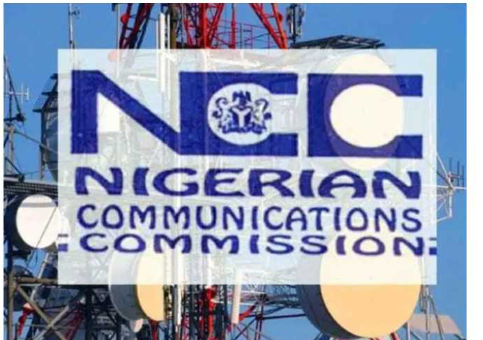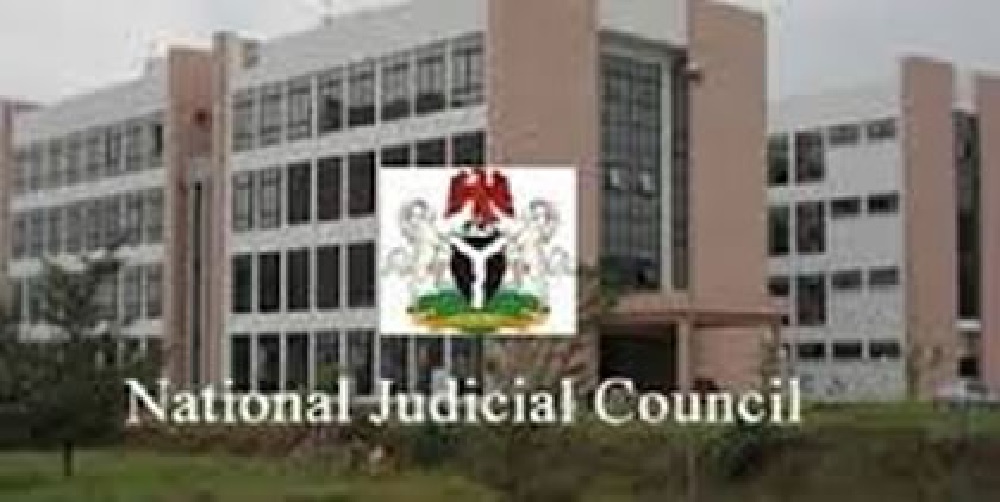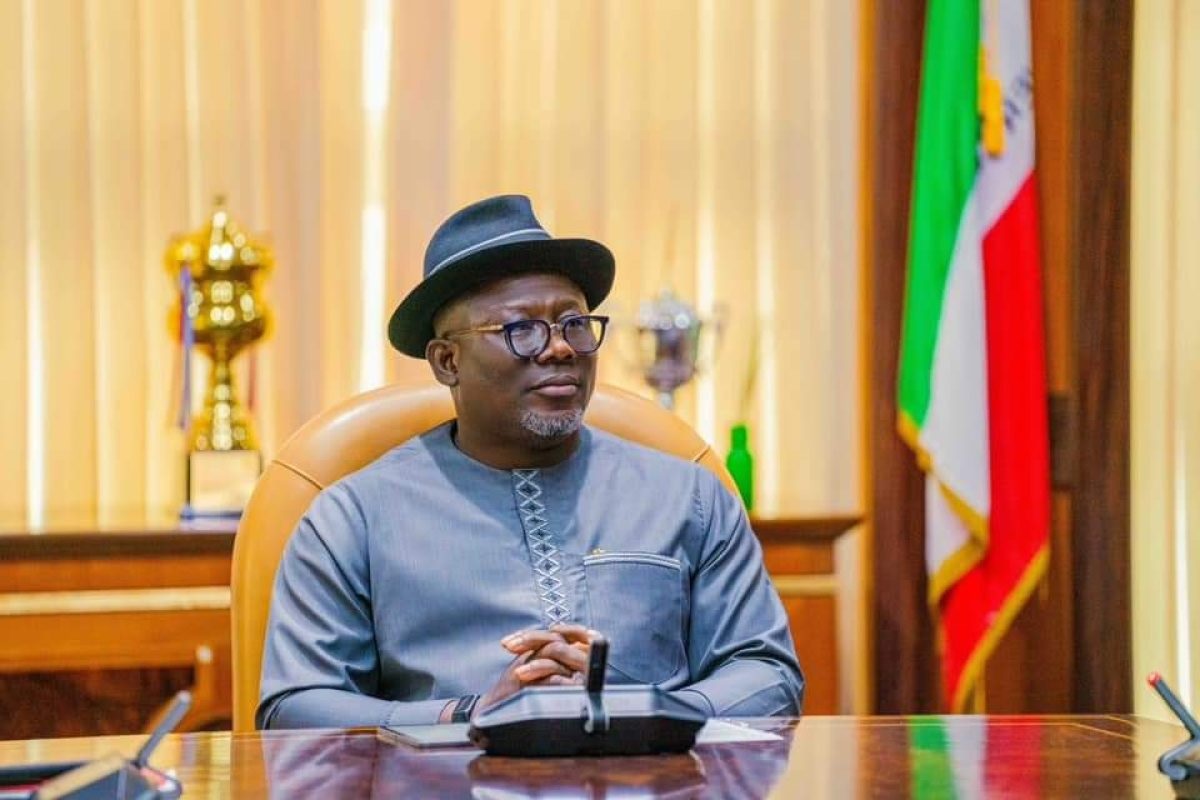News
High Operating Costs: NCC, stakeholders kick as telcos threaten service outage

By Kayode Sanni-Arewa
Telecom operators have warned that the excruciating financial obligations they are burdened with at the moment may push them to adopt load-shedding formula of the power sector in providing telecom services in the country.
But the regulator, the Nigerian Communications Commission, NCC, in a swift reaction, said it would not be arm-twisted by the operators’ threat.
Load-shedding is a formula that the electric power provider uses to relieve stress on a primary energy source when demand for electricity is greater than the primary power source.
It is a service formula which denies power supply to an area at a time just to relieve stress on the power source.
Chairman of the umbrella body of the telcos, Engr Gbenga Adebayo, disclosed this at an event put together by the Financial Derivatives Company, FDC, titled ‘’Telecom Industry 2.0: The Next Investment Frontier in Nigeria.’’
Addressing concerns of debilitating telecom services in the country, Adebayo said the country’s economic woes have impacted the telcos so badly, to the extent that they might not be able to service all their facilities at the same time.
Adebayo said the point at which telcos have found themselves at the moment is where they could only service a part of their facilities at a time, meaning that the area they are able to service will enjoy better services, while other areas not so lucky at the time may just have to bear epileptic services.
Telecoms sector, victim of its own success ’
Adebayo said: “The question to ask is why has government found it difficult to take advantage of different advocacies to sustain a healthy telecom sector despite these advocaies coming from verified data and indicies?
‘’I will say it is because the telecom sector has become a victim of its own successes. The behaviour of the public sector towards using the sector to better the economy is at variance with what is obtainable in other climes.
‘’The behavior of those that superintend over government agencies is poor and anthitetical to progress. Remember that when the operator signed agreement to provide telecom services in the country in 2001, the part Nigerian government signed was to provide 18 hours of power supply to the operators.
‘’That part of the bargain has not been fulfilled since then. Yet, the greater part of our operating expenditure, OPEX is on power.
“Multiple taxation from different government and non-government agencies is another hydra-headed problem, just as the banking sector debt to the telcos have also culminated to the poor state of infrastructure maintenance in the telecom sector.
“As we speak, there is an Association of Telecom Landlords whose primary aim is to fix rental charges for telecom facility deployments. This will be in addition to over 40 different taxes and levies the telcos face in the course of their operations.
“With all these, services will continue to be impaired. Today, we are heading to a situation where telecom services will be provided in parts because telcos may not be able to service all their sites at the same time.”
Price increase has become imperative —MTN CEO
Corroborating Adebayo was the CEO of MTN Mr Carl Toriola who joined the meeting on Zoom.
Toriola said that the severe sustainability challenges the telcos currently face need urgent attention to salvage the entore ICT sector.
He said despite the growth over the past two decades of liberalisation, the sector is now threatened by rising costs and unsustainable pricing.
He said: “Price increase has become imperative, it is now an absolute necessity because the sector is in an intensive care unit and needs urgent rescue to avoid total collapse”.
Expressing concerns that the sector will lose more investments as the rot digs in, Toriola said: our fundamental challenge is that the financial returns expected from the industry are now so low that they threaten its very survival.
“Nobody is going to put in $1 with the expected return of 60 cents on the dollar,” he said.
“There’s no way under the surface of the earth, in the kind of inflationary environment and forex devaluation that we’ve seen, that an industry can maintain prices the same for 11 years.
“The telecoms sector has faced escalating costs across the board — from the cost of capital to the soaring expenses of maintaining infrastructure like base stations and diesel generators.
“Without adjustments to pricing, the industry’s ability to function and attract investment is in jeopardy.”
However, the telcos’ position has drawn reactions from critical stakeholders, including the regulator, the Nigerian Communications Commission, NCC, National Association of telecom subscribers of Nigeria, NATCOMS, among others.
NCC reacts
A reliable source at the NCC said the regulator would not be arm-twisted by the telcos’ threat because they are known to be deploying several tactics to get the regulator to approve tariff hike for them.
He said: “We agree that the operating environment is difficult but it is not only for the telcos, every other sector is going through same hard times. If the operators say they cannot provide quality services because of economic conditions, it is not strange. It is their strategy.
‘’The reason they have not gone to where you have access gaps is because of low revenue they could attract in those places. This latest load-shedding formula is a subtle threat to get the regulator approve tariff hike, which they know is not possible that way.
‘’We cannot be arm-twisted by subtle threats “ the source who didn’t want his name mentioned, said.
Subscribers ‘ll hold NCC responsible—NATCOM
But in a sharp reaction, the President of NATCOMs, Chief Deolu Ogubanjo, said the subscribers will hold the NCC responsible if the industry collapses because, according to him, load-shedding will collapse not only the telecom sector but banking, education, health and other sectors which are now dependent on telecom services.
He said: “Telecom has become a legacy with the Nigerian society now, because telephone is life. In several stakeholder meetings, we have advocated that the telcos should be allowed a decent level of tariff pricing to tally with the high operating cost and the regulator is not doing anything about it when it has seen that these telcos are crashing under the weight of operating costs. It is not fair.
‘’It is possible that their OPEX may not be able to carry routine maintenances and what that may lead to is service downtime as we are witnessing now. If anything happens to the telecom sector today, the banking, education, health and entertainment sectors among others will go with it.
‘’This is why the regulator should act fast, else subscribers will hold it responsible if the industry collapses,” he threatened.
huge foreign direct investment into the country.
On infrastructure deficits, the telcos complained they still lacked access to essential telecommunication services due to a myriad of challenges, including multiple taxation and regulations and prohibitive Right of Way (RoW) charges, inadequate electric power supply and vandalism of telecommunications infrastructure.
They also advocated legislation that designates telecommunications infrastructure as critical national infrastructure as a way of protecting assets and network infrastructure in the country, considering the escalating security threats facing telecommunications infrastructure in Nigeria.
The telcos also claimed that telecommunications infrastructure development required substantial investments in network expansion, maintenance, and technology upgrades.
They added that despite the adverse economic headwinds, the industry remained the only one yet to review its general service pricing framework upward in the last eleven years, primarily due to regulatory constraints.
They also argued that for a fully liberalized and deregulated sector, the current price control mechanism, which is not aligned with economic realities, threatened the industry’s sustainability and could erode investors’ confidence.
The joint statement also asked government to sustain the culture of independence in the regulatory landscape as safeguard against undue influence and unwholesome incursion into the Nigerian Communications Commission, NCC’s domain.
They believe regulatory independence would inspire trust in the telecommunications sector and encourage investment.
Stakeholders, analysts side with telcos
Meanwhile, stakeholders and telecom industry analysts have supported the telcos’ call for a flexible pricing model, saying it would open doors of more opportunities for the sector.
A senior lecturer and former HOD, Computer and Information Sciences Department, Trinity University, Dr. Falade Muritala Adesola, said: “Pricing autonomy is a linchpin for industry sustainability. The ability to set cost-reflective tariffs is indispensable for ensuring adequate returns on investment and fostering long-term viability.
‘’Telecom operators require a more transparent and collaborative approach to tariff adjustments, emphasizing the importance of a pricing framework aligned with operational realities.
‘’The current pricing window, sanctioned by regulators, is a foundation, but the industry needs greater flexibility to navigate cost fluctuations while ensuring service quality and accessibility remain uncompromised.
“The clamour for cost-reflective tariffs is not merely about short-term gains but a strategic imperative to sustain the sector’s growth trajectory. The transition from 2G to 5G and with 6G on the way symbolizes the industry’s evolution, made possible by substantial investments that fuel innovation and expand service capabilities. However, without conducive regulatory frameworks that incentivize investment, the industry risks stagnation, jeopardizing future advancements and undermining service availability.
“The telecommunications industry in Nigeria is currently at a crossroads where infrastructural challenges, pricing dynamics, and regulatory frameworks intersect, offering a unique opportunity for swift and collective action.
‘’A thriving and resilient telecommunications ecosystem has the potential to empower individuals, drive economic growth and enrich lives across the nation of Nigeria. Whilst the industry regulator has delivered commendably, prevailing realities demand a new approach to ensure continued viability of the sector.”
News
NJC investigates 18 Imo judges over suspected age falsification

The National Judicial Council has launched a probe into 18 judges in the Imo State judiciary over allegations of age falsification, in a development raising fresh concerns about integrity and transparency within Nigeria’s judicial system.
The NJC, in a statement on Thursday by its Deputy Director of Information, Kemi Ogedengbe, confirmed that the allegations were being treated with utmost seriousness and were currently under review.
“Allegations of this nature require detailed investigation before any action can be taken,” Ogedengbe stated.
“The NJC is investigating the allegations and may take a decision by the end of the month. For now, we cannot act without completing our inquiries. The council will convene and make decisions on the matter.”
The investigation follows a petition submitted by a civil society group, Civil Society Engagement Platform, which described the matter as an “unprecedented breach of judicial integrity.”
The group alleged that the judges deliberately manipulated their birth records to either prolong their tenure or gain appointments within the judiciary.
In a letter addressed to the NJC Chairman and Chief Justice of Nigeria, Justice Kudirat Kekere-Ekun, the platform cited discrepancies in the judges’ official documents, including Law School registration forms, Department of State Services reports, and Nominal Rolls.
The petition, signed by CSEP’s Director of Investigation, Comrade Ndubuisi Onyemaechi, included what it described as compelling documentary evidence marked as Exhibits 001 to 018.
Among those named in the petition is Justice I. O. Agugua, who reportedly has two different birth dates—May 10, 1959, and May 10, 1960—and is also facing separate allegations of misconduct.
Justice C. A. Ononeze-Madu is alleged to have birth records stating both July 7, 1963, and July 7, 1965, while Justice M. E. Nwagbaoso is accused of presenting conflicting dates of birth—August 20, 1952, and August 20, 1962.
The remaining 15 judges also reportedly have varying inconsistencies in their personal data, a revelation that has intensified public scrutiny of the judiciary’s accountability mechanisms.
The NJC, which is constitutionally empowered to discipline judicial officers, is expected to reconvene soon to deliberate on the findings of its inquiry and take appropriate disciplinary actions where necessary.
The unfolding development comes amid mounting calls for institutional reforms to restore public trust in the judiciary and reinforce ethical standards across all arms of government.
News
Delta committed to safeguard its cultural heritage – Oborevwori

Delta State Governor, Sheriff Oborevwori, has reaffirmed his administration’s commitment to the preservation and promotion of the state’s rich and diverse cultural heritage, describing cultural festivals as vital tools for sustaining indigenous identity.
Oborevwori made this known on Thursday while receiving the President and leadership of the Organisation for the Advancement of Anioma Culture, who paid him a courtesy visit at Government House, Asaba.
Speaking during the meeting, the governor commended OFAAC for its over two decades of dedication to the promotion of Anioma cultural heritage, describing the body as a “vehicle of unity” in Delta State.
He pledged his administration’s full support for OFAAC and similar cultural organisations that contribute to peace, unity, and development.
“I commend OFAAC’s tirelessness and dedication to preserving Anioma culture, heritage, and identity,” Oborevwori said. “Your efforts are crucial in promoting our rich traditions and values.
As a government, we reaffirm our commitment to preserving cultural heritage across the state and supporting initiatives that promote festivals and language, which are essential in shaping our identity.”
Oborevwori also expressed gratitude to the people of Delta North for their overwhelming support during the last governorship election, noting that he secured victory in all nine local government areas within the Anioma region.
“Under our M.O.R.E. Agenda, we have implemented key projects across the Anioma nation and throughout the state. I am particularly grateful to the Anioma people for their strong support and love,” he said.
He further lauded the inclusiveness of OFAAC’s activities, noting its practice of inviting other ethnic groups to its events, which he said fosters unity and cultural harmony across the state.
Earlier, OFAAC President, Arc. Kester Ifeadi, said the purpose of the visit was to formally inform the governor about the group’s forthcoming cultural fiesta, scheduled for Easter Monday.
He described Oborevwori as a “detribalised leader” and commended his administration’s developmental strides across all three senatorial districts in the state.
Ifeadi reaffirmed the support of the Anioma people for the governor’s M.O.R.E. Agenda, emphasising that OFAAC would continue to be a platform for promoting unity among Delta’s various ethnic nationalities.
News
Scores killed as NAF fighter jet bombs insurgents’ stronghold in Sambisa forest

The Nigerian Air Force on Thursday announced that two coordinated airstrikes had successfully neutralised several terrorists and destroyed their hideouts in Borno State.
The precision strikes, carried out under the Air Component of Operation Hadin Kai, targeted known insurgent enclaves in Kollaram and Arra—two areas identified as long-standing terrorist strongholds within the Sambisa general area and the Southern Tumbuns.
According to a statement released by the Director of Public Relations and Information at NAF Headquarters, Air Commodore Edward Gabkwet, the first operation was conducted at approximately 5:30 a.m. in Kollaram, following credible intelligence and surveillance footage that confirmed the presence of high-value terrorist commanders and operational facilities.
“In a bold display of force and precision, the Nigerian Air Force, under Operation Hadin Kai, executed two highly successful air interdiction missions on April 15, 2025, targeting terrorist strongholds in Borno State’s Sambisa general area and the Southern Tumbuns,” the statement read.
“The first strike occurred at approximately 5:30 a.m. in Kollaram, a known insurgent hub. Intelligence reports, corroborated by surveillance footage, confirmed the presence of high-value terrorist commanders and several operational structures, including those equipped with solar panels. NAF assets executed a precision strike, eliminating numerous fighters and disabling key infrastructure.”
Later in the day, at about 3:55 p.m., another strike was carried out in Arra, also within the Sambisa axis.
According to Ejodame, real-time visuals obtained from Intelligence, Surveillance, and Reconnaissance missions revealed clusters of armed militants actively operating in the area.
“Precision-guided munitions were employed during the mission, resulting in the effective destruction of identified targets and significant disruption of the group’s operational capabilities,” he added.
Ejodame emphasised that the airstrikes form part of an ongoing and intensified aerial campaign aimed at degrading terrorist capabilities, dismantling leadership structures, and eliminating insurgent sanctuaries across the region.
Meanwhile, the Defence Headquarters said on Thursday that troops neutralised a notorious terrorist kingpin, Bello Kaura, in a precision airstrike conducted by troops of Operation Fasan Yamma.
Kaura was among the scores of terrorists neutralised by troops between April 10 and 16, 2025, according to the DHQ.
A statement by the Director, Defence Media Operations, Maj. Gen. Markus Kangye, said troops, in collaboration with other security agencies and hybrid forces, carried out a series of coordinated operations in Zamfara, Sokoto, Kaduna, Niger, Kwara States, and the FCT among others.
These operations, he said, were marked by fierce engagements with terrorists, leading to the killing of several insurgents, arrests of suspects, and recovery of a cache of arms and ammunition.
“Between 10 and 16 April 2025, troops conducted fighting patrols and made contact with terrorists in Anka, Tsafe, Talata Mafara, Kaura Namoda and Maru LGAs of Zamfara State as well as Gudu, Isa and Tangaza LGAs of Sokoto State. They conducted operations in Giwa, Chikun and Birnin Gwari LGAs of Kaduna State as well as Bida LGA of Niger State.
“During the encounters, many terrorists were neutralised, including an identified terrorist kingpin, Bello Kaura, in an air interdiction, arrested some of them, while 17 kidnapped victims were rescued,” he said.
He also said troops thwarted oil theft worth over ₦262.7m and arrested suspects.
“During the week under review, Operation DELTA SAFE foiled oil theft worth over N262,702,150.00 only.
“The breakdown indicates: 117,395 litres of stolen crude oil, 22,050 litres of illegally refined AGO, 6,000 litres of DPK and 8,060 litres of PMS. Additionally, they discovered and destroyed 102 crude oil cooking ovens, 94 dugout pits, 18 boats, four speedboats, 56 storage tanks, 164 drums and 42 illegal refining sites. Other items recovered include pumping machines, drilling machines, galvanised pipes, tricycles, motorcycles, mobile phones and nine vehicles,” he said.
Kangye assured the citizens of the Armed Forces’ commitment to protecting national sovereignty and ensuring the safety of all law-abiding citizens.
He said to deny the criminals freedom, the military would take the battle to them.
“We are taking the battle to the enemy to deny them freedom of action, making them thirst for surrender.
“I wish to reiterate the untiring commitment of the Armed Forces of Nigeria to dominate and act in defence of our nation’s sovereignty while guaranteeing the protection of all law-abiding citizens to promote the betterment of our society.
“Our operations across all theatres remain focused, intelligence-driven, and in line with the highest standards of professionalism and respect for human rights,” Kangye added.
He called on the civil populace to continue supporting military operations.
Kangye said, “We once again appeal that the civil populace trust us and see us as friends and partners working for the general good and well-being of the nation. We recognise the sacrifices made daily by our gallant troops, and we salute their courage and dedication.”
-

 News17 hours ago
News17 hours agoBREAKING: Unknown gunmen reportedly storm Senator Natasha’s family residence
-

 News20 hours ago
News20 hours agoSnub story on removal of Rivers Sole Administrator, it’s FAKE-Chief Registrar
-

 News19 hours ago
News19 hours agoSAD! Again, Alleged Herdsmen Attack Three Benue Communities
-

 News11 hours ago
News11 hours agoAbuja light rail project must be commissioned on May 29-Wike vows
-

 News17 hours ago
News17 hours agoLawmaker Slams NBA Over Rivers Crisis, Demands Return of N300m
-

 Politics19 hours ago
Politics19 hours agoPDP govs are jokers, can’t stop coalition train, Atiku boasts
-

 News15 hours ago
News15 hours agoFinally , Lagos Court frees Quadri, young Nigerian who stood before Obi’s convoy in viral photo
-

 News12 hours ago
News12 hours agoJust in: Alleged Herdsmen Armed With AK-47 Rifles Take Over Communities In Benue State






